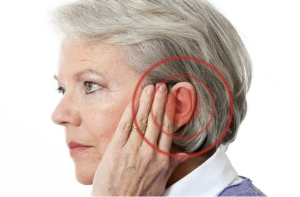A group of scientists from China and Italy teamed up to explore the relationships between age-related hearing loss (when hearing gets worse as you get older), tinnitus (that ringing sound in your ears), and problems with memory and thinking in older people. They wanted to figure out if these things are connected and if one could make the others worse.
As we grow older, many of us experience hearing problems (read more here). These can come from issues in the way our ears process sound or how our brain understands it. This kind of hearing loss is common among older adults and ranks as one of the top chronic disabilities in the elderly. The researchers pointed out that there might be a connection between this hearing loss and problems with memory and thinking. This is important because it might even increase the risk of more serious issues like dementia.
The researchers found that there’s a link between hearing problems and memory issues. They discovered that people with hearing loss, especially as they age, might also have problems with their memory and thinking abilities. This could be because the brain has to work harder to understand sounds when the hearing isn’t so good. This extra effort might leave less brain power for remembering things.

The image adopted from The Hearing Review Website
Interestingly, they also looked at the possibility that trouble with understanding sound (called central auditory processing disorder) could be a sign of future memory problems. This might happen because certain changes in the way the brain processes sound could also affect our ability to remember things.
The researchers even talked about a condition called chronic subjective tinnitus. This is when people hear sounds like ringing in their ears even when there’s no actual noise around. They found that this condition could affect how well people think and remember things. But it’s important to know that not everyone with tinnitus has these problems with memory and thinking.
The scientists also tried to understand why these things might be connected. They suggested that there could be common factors like getting older, issues with blood flow, and inflammation that affect both our hearing and our memory. They also mentioned that our brain and ears are connected, and if one isn’t working well, the other might not work well either.
They talked about different ideas, like the “cognitive-load hypothesis.” This means that when people can’t hear well, their brain has to work extra hard to understand sounds. This can leave less brain power for other tasks like thinking and remembering.
Another idea they explored is the “cognitive-reserve depletion or cascade hypothesis.” This is a bit more complicated, but it’s all about how keeping your brain active and learning new things might help protect your memory as you get older. On the other hand, if you already have memory problems, it might affect how well hearing aids or other hearing devices work for you.
To sum it up, the scientists studied how hearing loss, tinnitus, and memory problems might be connected. Although they didn’t find a clear answer, they did suggest some things we can do to help our hearing and memory. Taking care of our hearing, staying mentally active, and living a healthy lifestyle could go a long way in keeping both our hearing and memory in good shape as we age.